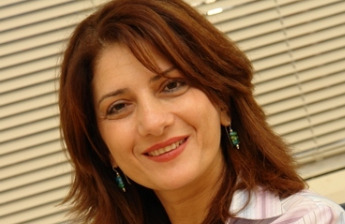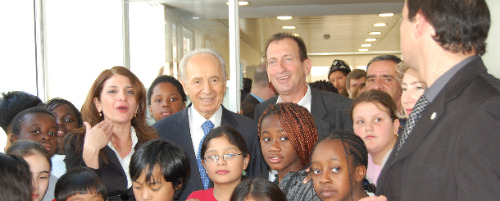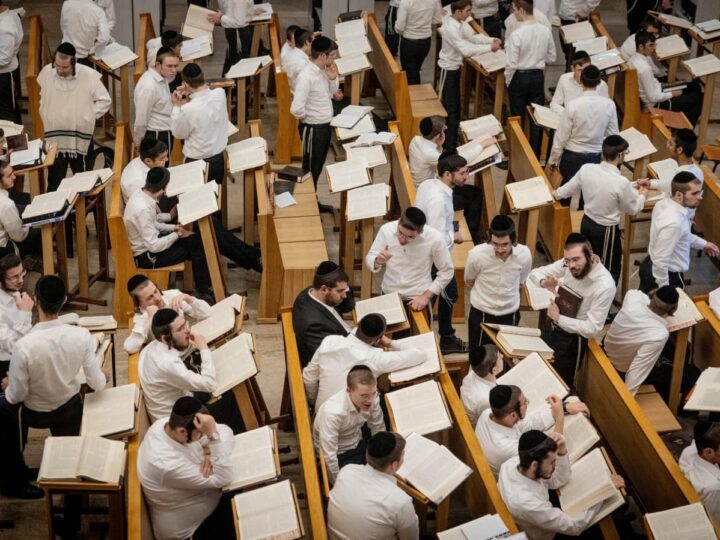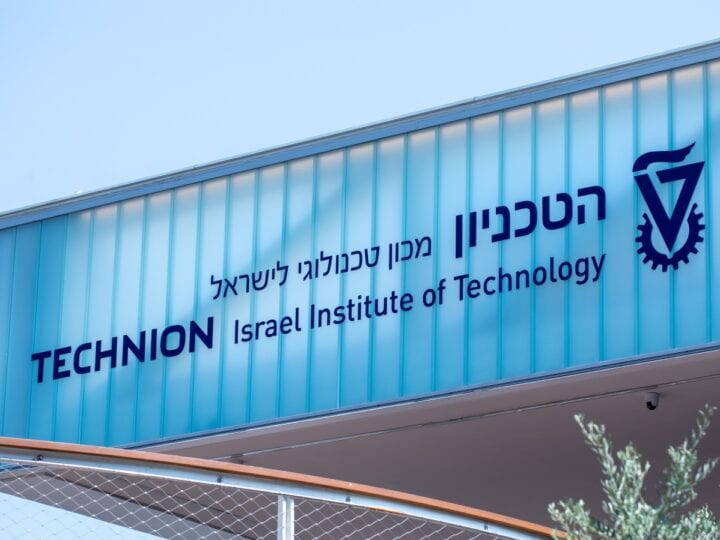
The future looked bleak when Karen Tal took over as principal of two schools housed in one decaying building in South Tel Aviv. The hodge-podge student body of Jewish Israelis, Arab Israelis, refugees, and immigrants from 40 countries was known for dismal matriculation rates and widespread violence. City Hall was threatening to shut them down.
Tal wasn’t fazed by these odds. Growing up in a hard-working immigrant family from Morocco, she learned early-on how to conquer challenges. Even visiting her grandmother in a tough Jerusalem neighborhood required a strategy for getting past loitering teenagers.
“I learned that I could talk to them confidently if I defined my goals and took action,” she recalls.
Working with your brains and heart
Bringing the same can-do attitude to work, Tal merged the two schools and transformed Bialik-Rogozin into a model educational institution where 800 multicultural students from kindergarten to 12th grade learn successfully and harmoniously. She promised the teachers there “an educational miracle”, and she has delivered.
Now at the start of her sixth year at Bialik-Rogozin, Tal and her staff and volunteers have raised the matriculation rate from 28 percent to 70 percent, which is higher than the national average. And the percentage of graduates going on to serve in the military or national service has increased from 48 to 68.
The first glimmer of change appeared in her second year, when – for the first time – none of the teachers requested sabbaticals or transfers. Then the municipality built a new cafeteria for the school, signaling its optimism. When President Shimon Peres came to visit last year, Tal saw it as the fulfillment of her prediction that “one day everybody will come to see us not because we are bad, but to recognize what we are doing right,” she tells ISRAEL21c.
She approached her task by formulating a detailed vision and describing it clearly to the people who would help her to achieve it, “even though they were very skeptical because it was so far from the present reality.” She drew up a comprehensive plan of action, incorporating a results-oriented “action committee” of area high-tech and academic professionals in addition to parents and teachers.

“This way, you get other points of view” she explains, “If you are professional and work with your brains and heart together and work very hard consistently, you can succeed.”
A recipe for success
Tal’s emphasis on hard work and education comes from parents who labored to make sure she and her four siblings received a quality education. Arriving in Jerusalem in 1968, her father, a former jeweler, found employment as a postman and as a waiter in the Knesset. Her mother, formerly in haute couture, worked with children.
When she was nine, Karen started tutoring neighborhood kids. During her military service she won a spot in a new project to provide high school dropouts with enough reading, math and self-sufficiency skills to join the army. She went on to serve as an education officer in the Israel Air Force.
After earning her master’s degree in education at the Hebrew University, Tal became a teacher and then vice principal at the Tel Aviv high school that had seven of its students murdered in the Dolphinarium discothèque terrorist attack in June 2001. This school, once plagued by a poor image, is now one of the most exclusive in Israel.
Achieving such a dramatic turnaround at Bialik-Rogozin took determination and motivation. “If I have sugar, flour, and eggs, I can make a cake. But what kind will it be? You can put the ingredients together but if your heart is not in it, it will not be tasty.”
Influencing the future
Not that Tal has much time to bake cakes at home in the Jerusalem suburb of Modi’in. Married to the principal of a Tel Aviv technical high school, she has one daughter in the air force and another starting 11th grade. “It’s a complicated dance” to balance work and family, she says.
“I have 48 emails to answer after this interview,” she relates at 8:30 p.m. “I come in at seven every morning. I don’t like to admit it, but I take my work home with me, into the weekend, into the night. All day I see the eyes of my students in front of me.”
Those eyes belong to youngsters like ‘Yana,’ a recent Russian immigrant and orphan living in a group home; ‘Saib,’ an Israeli-Arab struggling to learn Hebrew and find his identity; ‘Jan,’ the son of a Polish foreign worker; ‘Muhammad,’ an orphaned refugee from Darfur; and ‘Maria,’ who faces deportation along with her illegal-alien mother.
The school doubles as a refuge and community center, supported by a crew of more than 100 volunteers aged 18 to 82. Children receive two meals a day, afternoon activities, and homework help. They abide by a strict code of behavior. Parents, more than half of whom are raising their kids alone, are more involved than ever. Tal has even opened an evening class for 135 parents who want to learn Hebrew.
“Our students are Muslim, Jewish and Christian, but they all speak Hebrew and wear the same uniform,” says Tal. “We cannot change the starting points of their lives, but with a lot of help and courage and professional tools we can influence their present and future and give them a real chance for success.”
















